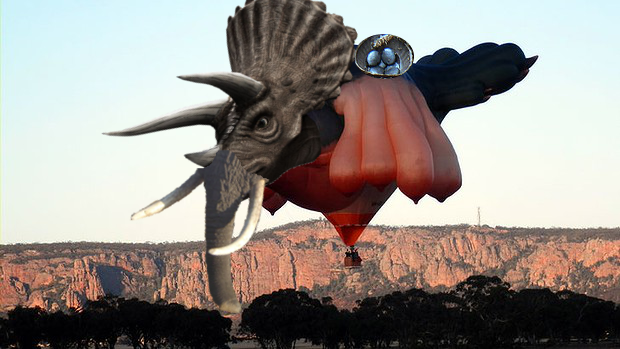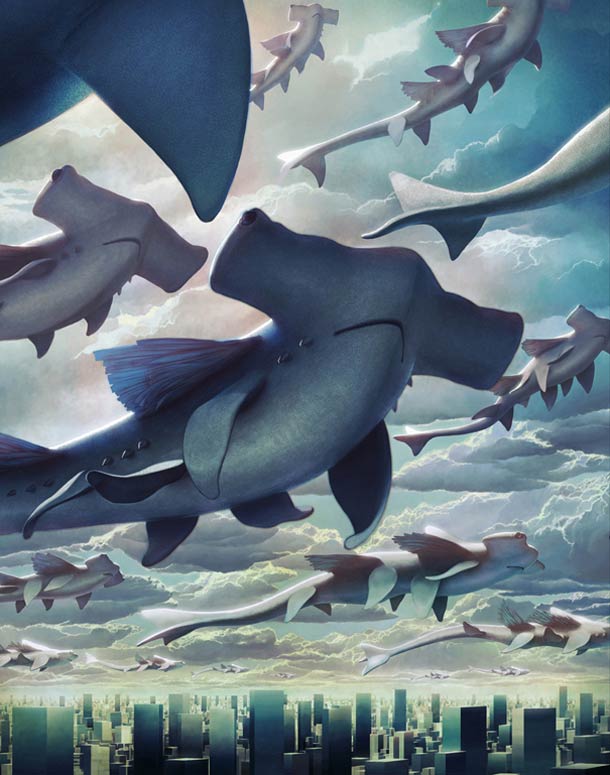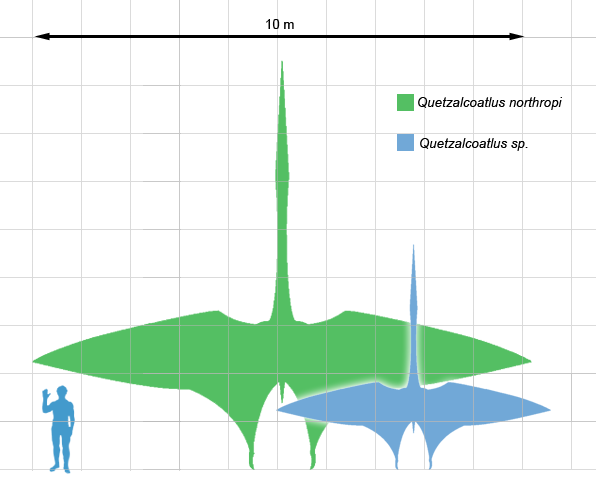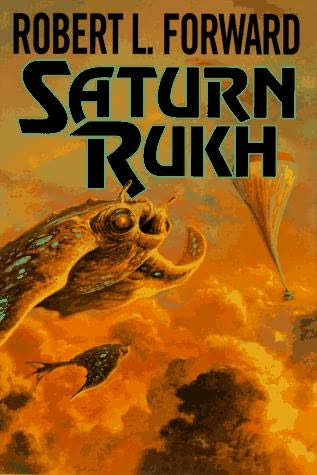I think any answer to this question really hinges on how earth-like you want your planet to be and how earth-like you want the rest of your fauna and flora to be. Since you don't place any restrictions on these, I'll take the liberty to assume these factors are tweakable in order to get our perpetually airborne creatures.
The other answers so far are on the right track in my opinion, so this will be more supplementary than a different idea.
Origins
The problem of explaining the evolution of a flier that never lands is twofold (I'm not a biologist :P):
- Why not land?
- Why remain in the sky?
It seems like the same question but it isn't.
Why not land?
On the first point, you can avoid most land without being in the air (there's oceans, tall mountains, caves etc.). The usual dangers aren't sufficient: predators can be avoided through changing location, changing your place on the food cycle or changing the hours you look for food. Thus, there is something far more dangerous or detrimental that makes landing a guaranteed darwin award. Those that land die or don't have babies (or their babies don't survive). This could be because of starvation, predation etc. but I've already excluded these as insufficient dangers. It has to be something ubiquitous on land which is harder to adapt to than flying forever.
I can't really think of anything ubiquitous enough that wouldn't be dangerous to all other life as well. It might be some temporary situation that lasted long enough for the adaptation of permanent flight (or just not ever landing on ground) but subsided far enough into the past to allow other life to re-emerge, leaving the fliers still in the air. Perhaps when both factors are combined there is sufficient motive to both avoid land and keep to the sky. Taking this into account, it may be possible to make predators a likely motivator - perhaps in the distant past, birds and fliers where so ubiquitous that land and water predators made them their main source of food, eventually making the ground and sea so dangerous that some of these creatures evolved to avoid that danger entirely.
Why remain in the sky?
In order to remain in the air perpetually, you would most definitely require an ecosystem. Whether that includes or excludes plants, it would definitely require at least one or two other species that have also adapted to perpetual flight. Have the mythical balloon-whales finally arrived?
Indeed, it seems Gilles' idea and the ancient worldbuilding tag may be the answer. If you have large balloon-whales evolve to slowly and perpetually roam the skies, they could be the symbiotic platform to allow landing without grounding. By virtue of being full of hot air, they could remain aloft while allowing comparatively smaller creatures to nest on their backs (or somewhere safer from the wind, unless the whale has some sort of triceratops head providing cover). These need not evolve from actual whales, just be creatures that can survive on air plankton and sunlight. They could have the temperament of sloths rather than whales, consuming air-plankton, insect and fumes as they float around (or swim in the air), taking advantage of strong currents to help them.

The creatures that nest on them would need to provide them with something, so perhaps they are small herbivores or omnivores (since meat is more efficient food) that spend the majority of their time in the air, but feed from the oceans or forest tops. Their droppings and leftovers are used by the balloon-whales to supplement their diet and energy requirements (or protein requirements, whatever).
Given this arrangement, your large never-landing creatures could be sky-sharks. Like sharks, their offspring are born ready to fly and hunt. They feed on the smaller air-dwelling creatures, particularly by snatching them as they descend for food, in droves. With a sufficiently large wing-span, carnivorous diet etc. they could possibly sustain themselves and rest while flying. Many sea creatures sleep while swimming and some birds can sleep while flying so this isn't that far-fetched.

At this point, you can add sky-wolves etc. to create a more complete ecosystem (as well as other birds that regularly land as usual).
Birth
At this point the answer is already quite clear: balloon-whales are born floating, the goblin-hawks on their backs are born on the backs of the whales and can grow strong enough for flight, assisted or not, before they make their first attempts and the sky-sharks are, like sharks, born ready.
Of course, you could have offspring be born in flight and only ready enough to climb on to the parent's back and cling their until they're strong enough (which would require a long and flexible neck on the parent's side in order to be able to feed it, which is convenient here). As they cling, they learn.
Pouches would work as well.
Size
Unfortunately I'm way too sleep deprived to get into research and math here, so I'll just make some wild guesses.
A large wingspan would most likely be required, hence the sky-sharks would have to be large. How large exactly would depend on atmospheric properties, the amount of food they get and how high they fly (I think). However, if we allow for some creative adaptations, perhaps their size can be increased.
In particular, we know that planes are massive and heavy, but can still fly just fine and even glide. The requirement is speed (as far as I understand). If they can find enough strong winds, drafts and currents, have enough of a wingspan to take advantage of these to lose as little speed as possible and have some form of propulsion to compensate, it may be achievable.
Propulsion could take the form of air sacs that fill up as they fly and are used as an afterburner. Or they could expel bowel gases. Considering we already have assumed balloon-whales that fly with the power of hot air, it isn't nearly as ridiculous as it would otherwise be to assume that the sky-sharks have a similar adaptation. Some sea-creatures use water propulsion (as in, not just swimming through water) and I think some microbial life does as well, so it is possible at least in theory fantasy. Perhaps they ignite it too :P.






